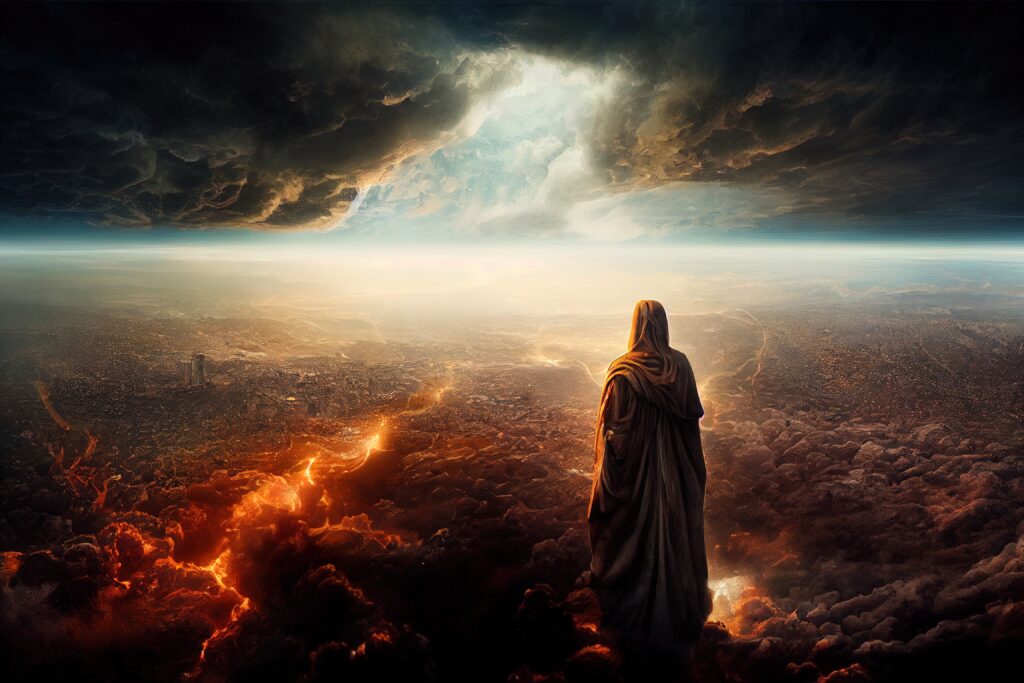
Echoes of Babylon’s Fall.
The sixth angel poured out his bowl on the great river, the Euphrates; and its water was dried up, so that the way would be prepared for the kings from the east.” – Revelation 16:12 NASB
In the Old Testament, the Euphrates was a critical means of support for Israel’s enemies, Assyria and Babylon. The river flowed through Babylon and was important to the city because it nourished crops and provided water for people. It was also the source of commerce and wealth. Ships of trade came and went on its waters and docked at its gates. Babylon could not survive without the Euphrates.
As we shall see in a few days, Revelation 17:1 describes end-time Babylon as sitting upon many waters, a reference to the Euphrates (Jer.51:13.) Rev.17:15 explains that the waters upon which end-time Babylon sits represent the people who support it: the worldwide civil, secular, and political powers behind the system. However, these powers eventually will retract their support.
There is rich biblical significance in this allusion to the last night of ancient Babylon.
The scene of the sixth plague reflects the capture of ancient Babylon by Cyrus the Persian. The story was recorded in Daniel 5. According to the ancient historian Herodotus, on the night that King Belshazzar and his officials had a feast, the Persians diverted the Euphrates and entered Babylon along the riverbed, taking the city by surprise.
The symbolic drying up of the Euphrates in V12 results in the collapse of Babylon in the end time. Because the Euphrates in Revelation represents the commerce of the world’s civil, secular, and political powers giving their support to Babylon, the drying up of the Euphrates symbolizes the withdrawal of their support and their subsequent attack against Babylon, thereby causing its downfall. (Rev.17 again)
As the people of the world witnessed the upheaval in nature (Rev.16:3-9, they had turned to Babylon for protection. However, as the fifth plague strikes the seat of Babylon’s authority (Rev. 16:10-11), they see the futility of seeking help there. Feeling deceived, they turn against Babylon, causing her downfall (Rev.17:16). Yet, as we have seen, their hearts remain hard against God and His people. As such, they become fertile soil for the final deception by which Satan will draw the world to unite against God’s people to wipe them off the face of the earth. In the last days we need to be wary of many things. The word of the living God is our only security.
The fifth plague had produced agonising darkness, causing the ungodly to curse God rather than repent, which itself is a demonstration to the watching universe. As with the plagues of Egypt that made Pharaoh even more stubborn, these plagues do not result in repentance. Instead, a profound darkness is a dramatic metaphor of the effects of sin on their hearts. The same sun that melts wax hardens clay. The same Holy Spirit works on hearts with two different results.
Like the sixth seal, the sixth plague brings a culmination of the effects of the kingdom of man, as represented by the number six. In both cases, it is a picture of despair and futile resistance to God’s salvation.
Here, the sixth bowl poured out on the Euphrates dries it up opening the way for the kings of the east.Three frog-like impure spirits emerge from an unholy trinity of dragon, beast and false prophet, deceptively parodying the miraculous signs that the God’s Holy Trinity produces and unifying the earthly powers in their determination to resist God to the end.
This plague is upon the kingdom of spiritual Babylon, and we are seeing its dying moments. The drying up of the waters evokes memories of Israel crossing the red sea at the beginning of the exodus and then the raging (flooding) Jordan 40 years later. Each was an act of God in bringing His people across impassable barriers out of slavery and into the promised land – in other words a metaphor of salvation. The east and the sunrise are also metaphors for Christ in the New Testament. (see Luke 1:78 and Matthew 24:27-31 where the second Coming is likened to lightening that comes from the east.)
